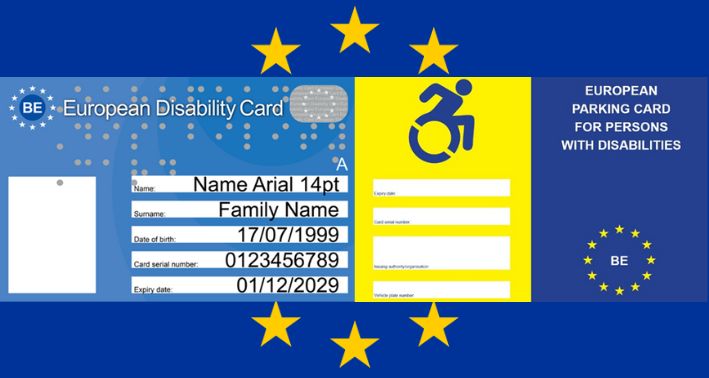MEPs on Wednesday gave the green light to the EU Disability Card and the European Parking Card for people with disabilities.
The new rules, approved by 613 votes in favour, 7 against and 11 abstentions and already agreed by Parliament and Council, create an EU-wide disability card to ensure that people with disabilities have equal access to preferential conditions, such as reduced or zero entry fees, priority access and access to reserved parking.
Both cards will give their holders, as well as accompanying persons and support animals, access to most of the same conditions as national card holders. The new rules will only apply to short-term stays and to disability card holders moving to another Member State for a mobility programme, such as Erasmus+.
European Disability Insurance Card
The European Disability Insurance Card will be issued in physical and, when available, digital format, and will be free of charge (also for renewal). Countries will decide whether to charge for lost or damaged cards.
European Parking Card for People with Disabilities
The European Parking Card for people with disabilities will be issued in physical format. Countries may charge for the administrative costs of issuing and renewing the card.

An EU disability card to support the right to free movement of people with disabilities in the EU |
Access to information
The Directive requires EU countries and the Commission to publicise the cards, in particular by setting up a centralised European website. This website will be linked to national websites, with information on how to obtain, use and renew the cards and information on preferential conditions.
Third-country nationals in the EU
The House also gave its green light to the provisional agreement between Parliament and Council on extending the EU parking and disability cards to third-country nationals legally residing in the EU, by 607 votes in favour, 8 votes against and 17 abstentions.
This proposal allows both cards to be issued both to third-country nationals legally residing in the Member States, including asylum seekers and stateless persons, and to their personal assistants, irrespective of their nationality.
Statement by the rapporteur
Lucia Iuriš Nicholsonová (Renew, Slovakia) said: “The EU must champion equal rights for people with disabilities within the EU.I am particularly proud that the cards now cover stays of more than three months so that people with disabilities have access to it when studying abroad. The importance of the European Disability Card goes beyond simply facilitating travel; it demonstrates the EU’s commitment to ensuring free movement for all Europeans”.
More information: European Parliament







Leave a Reply